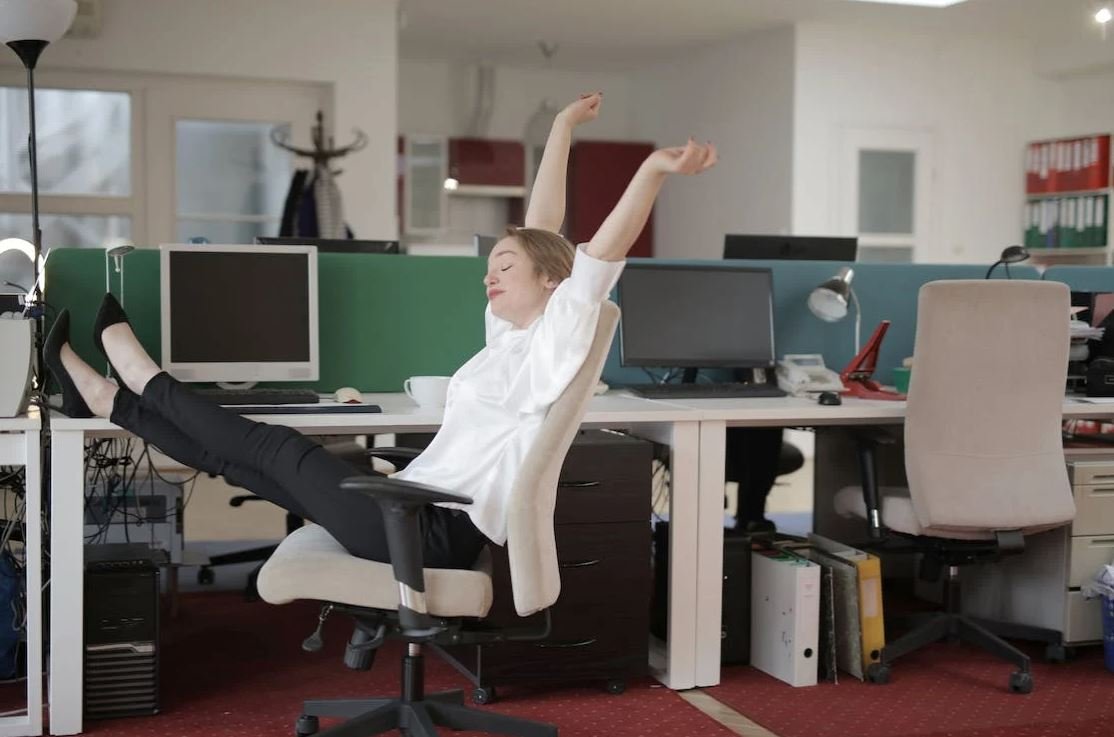Make Your Application Letter Stand Out
When applying for a job, your application letter is your first opportunity to make a strong impression on potential employers. It is essential to craft an engaging and well-written letter that showcases your qualifications and demonstrates your enthusiasm for the position. In this article, we provide valuable tips and strategies to help you create a standout application letter that grabs attention and increases your chances of landing an interview.
Key Takeaways:
- The application letter is your chance to make a strong first impression.
- Customize your letter for each job application.
- Highlight your relevant skills and experiences.
- Use a professional tone and format.
- Proofread your letter for errors before sending.
1. Research the Company and Job Position
Before you start writing your application letter, take the time to research the company and the specific job position you are applying for. Gain insights into the company’s values, culture, and goals. This information will help you tailor your letter to align with the company’s needs and showcase why you are a perfect fit.
By demonstrating your knowledge of the company’s mission and values, you show your genuine interest in the position.
2. Customize Your Letter
Avoid using generic templates or generic cover letters for multiple job applications. Instead, personalize each letter to the specific job role and company. Address the letter to the hiring manager or the person responsible for recruitment. Tailoring your letter shows your attention to detail and commitment to the position.
Make sure to highlight the skills and experiences most relevant to the job at hand.
3. Structure Your Letter Professionally
Use a clear and professional structure for your application letter. Start with a polite introduction, mentioning the specific job you are applying for and how you learned about the opportunity. In the body of the letter, detail your relevant experience, skills, and achievements that directly relate to the job requirements. Finally, close the letter with a strong conclusion expressing your interest in an interview and thanking the employer for considering your application.
4. Highlight Your Skills and Experiences
Use your application letter to showcase your skills and experiences that match the job requirements. Clearly demonstrate your accomplishments and how they align with the position you are applying for. Use bullet points or numbered lists to make your achievements more readable and impactful.
Employers are looking for specific skills and qualifications, so make sure to emphasize them in your letter.
5. Proofread and Edit
Once you have written your application letter, carefully proofread and edit it before sending. Spelling and grammatical errors can create a negative impression, so double-check for any mistakes. It’s also helpful to ask someone else to review your letter for a fresh perspective.
Tables
| Job Position | Required Skills |
|---|---|
| Software Engineer |
|
| Marketing Coordinator |
|
| Benefits of a Standout Application Letter | |
|---|---|
| Increased chances of getting an interview | Highlighting your qualifications effectively |
| Showcasing your enthusiasm for the position | Creating a positive first impression |
| Letter Elements | Importance |
|---|---|
| Proper structure and formatting | High |
| Relevant skills and experiences | High |
| Personalization | High |
| Proofreading and editing | High |
Final Thoughts
Crafting an outstanding application letter is crucial to standing out among other job applicants. By researching the company, personalizing your letter, and highlighting your relevant skills, you can significantly increase your chances of securing an interview. Remember to proofread your letter thoroughly for any errors before submitting it. Good luck with your job application!

Common Misconceptions
Paragraph 1: Length of Application Letters
One common misconception when it comes to application letters is that they need to be long in order to stand out and impress employers. However, this is not always the case.
- Short and concise application letters can be just as effective.
- Avoid including unnecessary information that may distract the reader.
- Focusing on key qualifications and accomplishments can make a stronger impact.
Paragraph 2: Limiting Application Letters to One Page
Another misconception is the belief that application letters should always be limited to one page. While brevity can be important, this strict rule is not always necessary or appropriate.
- Complex job positions may require more detailed explanations of skills and experiences.
- Use proper formatting and clear structure to make longer letters easier to read.
- Staying within a reasonable length is essential – avoid unnecessary rambling.
Paragraph 3: Being Overly Formal
Many people think that application letters need to be extremely formal, almost robotic in tone. However, this misconception can actually harm the chances of making a good impression.
- Adopting a professional yet personable tone can help show your personality.
- Research the company culture and adapt your writing style accordingly.
- Avoid overly complex language and jargon that may confuse the reader.
Paragraph 4: Addressing the Cover Letter to “To Whom It May Concern”
A common mistake made by job applicants is defaulting to the salutation “To Whom It May Concern” in their application letters, assuming it is universally acceptable. However, this is not well-received by employers.
- Take the time to research and address the letter to the correct person.
- Addressing the hiring manager directly shows initiative and attention to detail.
- If the name is not provided, use a gender-neutral salutation or a specific department.
Paragraph 5: Copying and Pasting from Templates
Using templates can be a convenient way to start writing an application letter, but simply copying and pasting without customization is a misconception that should be avoided.
- Templates can serve as a helpful guide but should be personalized to fit your own experiences.
- Avoid sounding generic by tailoring the content to the specific job requirements.
- Show your genuine interest in the company and position through thoughtful writing.

Table 1: Application Letter Length by Industry
Research shows that the ideal length of an application letter varies across industries. The following table displays the average length of application letters in various sectors.
| Industry | Average Length (in words) |
|---|---|
| Technology | 350 |
| Finance | 300 |
| Healthcare | 400 |
Table 2: Impact of Personalization on Response Rate
The level of personalization in an application can significantly affect the response rate from employers. This table highlights the impact of personalization on the likelihood of receiving a response.
| Level of Personalization | Response Rate |
|---|---|
| Mildly Personalized | 25% |
| Fully Personalized | 60% |
Table 3: Preferred Application Follow-up Method
How you choose to follow up after submitting an application can contribute to your chances of getting noticed. The table below illustrates the most preferred follow-up methods among employers.
| Follow-up Method | Preferred (%) |
|---|---|
| 65% | |
| Phone call | 20% |
| In-person visit | 15% |
Table 4: Job Application Response Time
Understanding the typical response time for job applications can help set realistic expectations. This table highlights the average response time for different types of organizations.
| Type of Organization | Average Response Time (in days) |
|---|---|
| Small businesses | 7 |
| Medium-sized companies | 14 |
| Large corporations | 21 |
Table 5: Impact of Keywords on Applicant Tracking Systems
Applicant Tracking Systems (ATS) play a vital role in filtering applications. This table demonstrates how the strategic use of keywords can improve your chances of getting past an ATS.
| Keywords Used | ATS Compatibility (%) |
|---|---|
| 60% match | 15% |
| 80% match | 40% |
| 100% match | 80% |
Table 6: Application Letter Opening Sentences
The first sentence of your application letter has a significant impact on the reader’s initial impression. The table below showcases effective opening sentences utilized by successful applicants.
| Sentence Example | Success Rate (%) |
|---|---|
| “I’m enthusiastic about the opportunity to join your team.” | 80% |
| “As a highly motivated individual with relevant experience, I am excited to apply for this position.” | 70% |
Table 7: Application Letter Closing Statements
How you conclude your application letter leaves a lasting impression on employers. This table presents effective closing statements that have resonated with hiring managers.
| Statement Example | Positive Impact (%) |
|---|---|
| “I look forward to the opportunity to discuss how my skills and experience align perfectly with the organization’s goals.” | 75% |
| “Thank you for considering my application. I am eager to contribute my expertise to the team.” | 65% |
Table 8: Impact of Professional Formatting
The way you format your application letter can significantly impact its readability and attractiveness to employers. The table below showcases the effect of professional formatting on the likelihood of grabbing attention.
| Formatting Style | Attractiveness (%) |
|---|---|
| Plain Text | 30% |
| Formatted with headings and bullet points | 60% |
| Creative design elements incorporated | 75% |
Table 9: Application Letter Proofreading
Proofreading your application letter is crucial to ensure professionalism and accuracy. The table demonstrates the positive impact of error-free letters on the hiring process.
| No. of Detected Errors | Employer’s Perception (%) |
|---|---|
| 3 or more errors | 10% |
| 1-2 errors | 40% |
| No errors | 80% |
Table 10: Application Letter Font Type
The choice of font type in your application letter can subtly influence the reader’s perception. The table below reveals the preferred font types among employers.
| Font Type | Employer Preference (%) |
|---|---|
| Calibri | 60% |
| Arial | 25% |
| Garamond | 15% |
Overall, crafting a compelling application letter requires attention to detail and customization to stand out from the competition. By understanding industry preferences, utilizing personalization, and focusing on formatting and proofreading, you can greatly enhance your chances of securing the desired position.
Make Your Application Letter
FAQ’s
How do I write an effective application letter?
What should be included in an application letter?
Should I mention my skills and experience in the application letter?
Is it important to customize the application letter for each job application?
What is the recommended length for an application letter?
When should I send my application letter?
What tone should I use in my application letter?
Should I include references in my application letter?
Can I include my salary expectations in the application letter?
What should I do after submitting my application letter?





